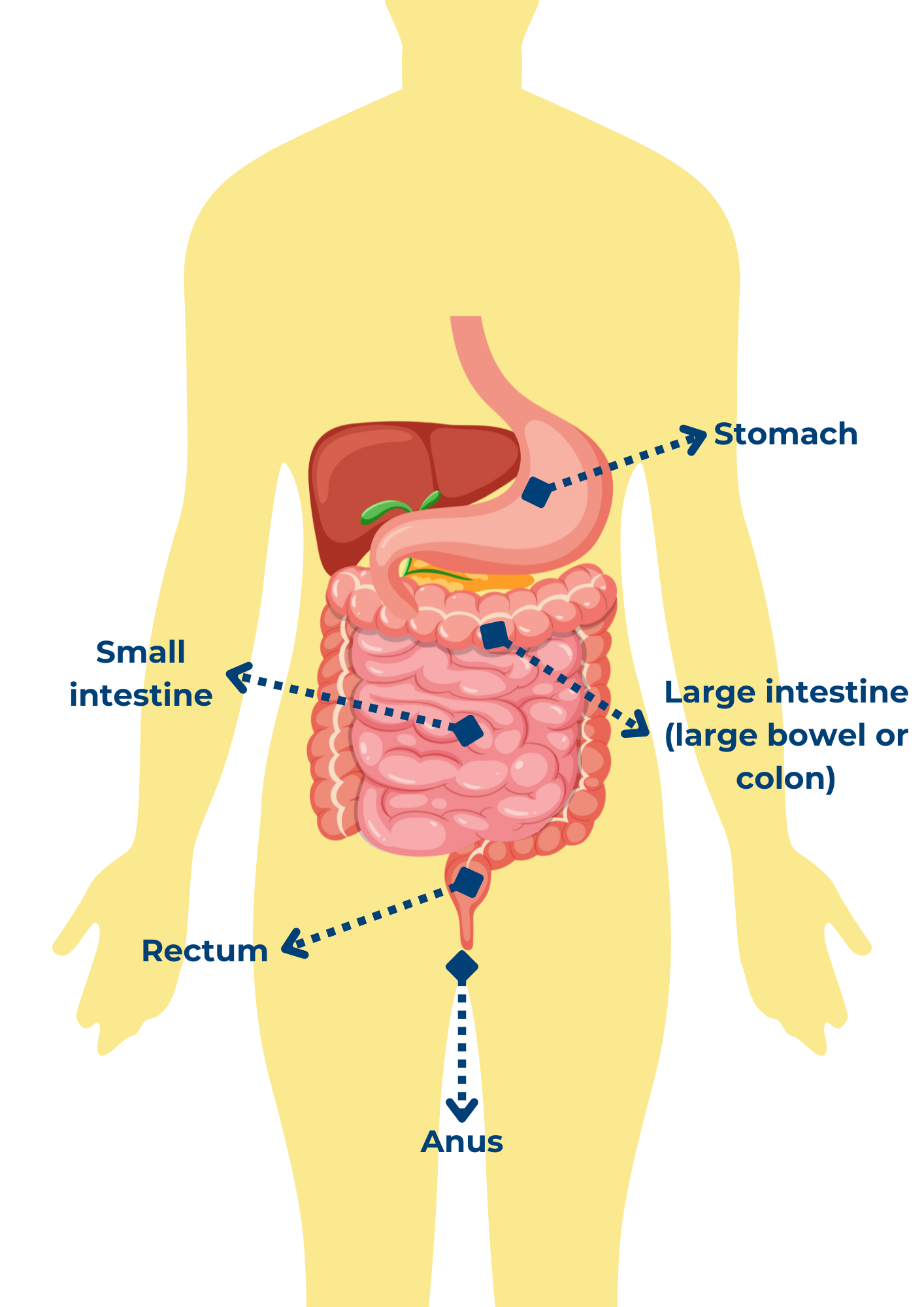Tuesday, 2 April, 2024
Bowel Cancer Awareness Month - April 2024.png)

In Ireland, over 2,500 people are diagnosed with bowel cancer (also called colorectal cancer) each year. Bowel cancer, or colorectal cancer, affects part of the digestive system, namely the small intestine, the large intestine, and the rectum.
Bowel cancer is one of the most common types of cancer in Ireland, with most people affected over the age of 60 years. There are 3 main symptoms of bowel cancer:
- a lasting change in your bowel habit, such as needing to go to the toilet more often, more runny poo, or constipation.
- blood in your poo or bleeding
- lower stomach pain, bloating, or discomfort
Survival rates of bowel cancer have increased significantly in Ireland in recent years, with over 90% surviving the disease if caught early, highlighting the need for early detection and screening.
In Ireland, everyone age 59 to 69 can access free (opens in a new window)bowel cancer screening though the HSE. Screening can identify bowel cancer before symptoms begin. The HSE will post the screening tests out top eligible people. Each person takes a sample of their poo and sends the kit back for testing.
While screening is important for increasing survival, people can still die from bowel cancer, particularly those who are diagnosed with late stage cancer (i.e. Stage 4). For this reason, it is imperative that research continues to explore new and better treatments, particularly for late stage patients.
The UCD Cancer Trials Cluster is actively involved in the development of new treatments for bowel cancer. For instance, the MOUNTAINEER-03 clinical trial is open at both our clinical sites, St Vincent’s University Hospital and the Mater Hospital.
This trial is for people with HER2 positive colorectal cancer that is metastatic and cannot be treated with surgery. The study aims find out if tucatinib with other cancer drugs works better than standard of care. This study will also test what, if any, side effects happen when participants take this combination of drugs.
For more information about our open studies, please click here.
For more information about bowel cancer, please see some useful links below: